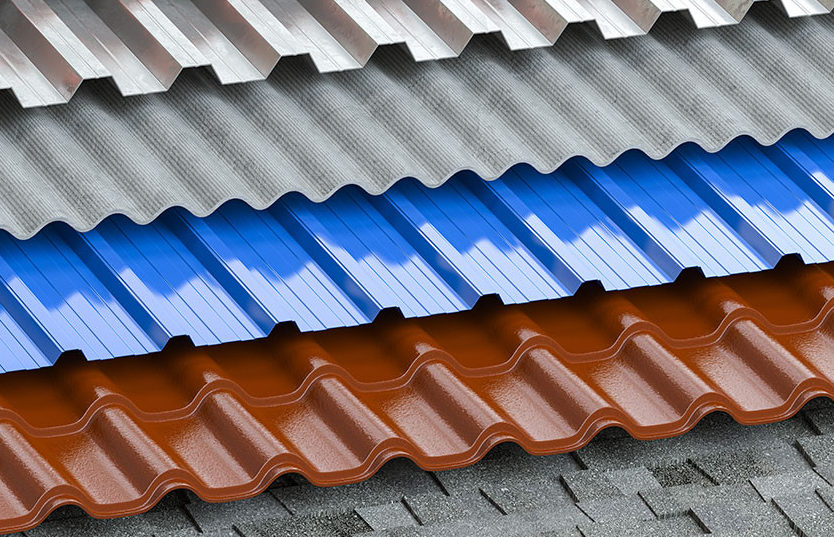
For numerous homeowners, electing a new roof can be difficult, expense is always a factor, and so is our aesthetics. However, handpicking the right material will also have an impact on your final election, if you’re in the market for a new roof choose the best roofing company to handle your installation. Some roofing materials are more suited for certain climates than others. Below, we’ll discuss the distinct roofing materials and some of their advantages.
Asphalt shingles are some of the most familiar roofing accoutrements you’ll see in the U.S. These shingles are American inventions and were first utilized as a structure material in 1901. Do you know why people love the iconic and popular asphalt shingle? for one thing, it’s simple to install, so you’ll pay lower in labor costs when you fix on a new asphalt shingle roof. Another benefit of applying asphalt shingles is that the material itself is one of the least pricey roofing accoutrements on the request.
Advantages
Slate is the most fashionable roofing material in the U.S, at least presently. In the early 1900s, 1800s and beforehand, slate was a popular roofing material. You may see numerous aged homes still sporting their original slate tile roofs, if you live on the East Coast. It’s also tricky to find educated roofers who can install a slate tile roof rightly. In numerous parts of the world, slate roofing is a finishing art.
Advantages
Cedar shingles and cedar shakes have been used as roofing accoutrements for hundreds of years. These accoutrements are frequently considered as some of the most captivating roofing accoutrements in existence. And like all roofing accoutrements, cedar shake and shingle have their pros.
Advantages
Rubber composite is similarly called synthetic slate in some circles. This material is made out of a mix of rubber and plastic that’s bonded on a molecular position.
Advantages
Metal roofs are getting progressively popular across the U.S, and its fluid to see why. These roofs can last for a long time, come in a variety of colors, and bear little maintenance. It’s also attainable to find metal roofs that come in lithe, lighter sheets that are qualified for a range of structures.
Advantages
Utmost regions of Spain, Mexico, Italy and the American Southwest have tons of heat and sun, and an abundance of Mission or Spanish-style terra cotta roofs. Some ancient places have clay and terra cotta tiles that have survived the test of time and grim centuries incinerating in the sun. Basic clay roofing is light in shade and does not reserve as much heat as a darker roof. ultramodern clay tiles have paint treatments to make them look like more pricey slate or traditional terra cotta and to adjoin weatherproofing and reflective capabilities.
Advantages
It is far less costly than slate and clay in utmost cases, but more expensive than traditional shingles, concrete tile is an accessory for warmed weather durability. Concrete is heavy and takes a lengthy time to heat, making it a good material for warm rainfall roofing. Using poured concrete slab roofing is a low-cost option in numerous developing countries, as it provides protection from bad rainfall and pests. It does the same in more evolved countries, acting as a hedge layer underneath further cosmetic roof treatment. In its tile form, concrete is still heavy but is simple to install than the poured concrete. It's incombustible and solid, though pervious enough to take in color when dyed.
Advantages
Reflecting heat back up into the air is one thing, but gripping the heat for use as indispensable energy is relatively another. However, a photovoltaic system is worth looking into, if you require to store up heat but not have it pent up in your home or office. Photovoltaic or PV roof shingles capture and deflect solar power into electricity. Solar electric panels and shingles come in customary shingle shapes and sizes, so adding this energy-effective technology is an aesthetic immolation as much as some of the aged rooftop panels of past decades.
Advantages
Another roofing material well-suited to warm airs is flat concrete tiling, and as mentioned before, it's accessible in cool colors. A thick, but lighter-weight version is the bright white flat tile made of ceramic, elastomeric material or combinations of filaments and cement. These white flat tiles rank high in testing as both really heat-reflective and long lasting. Flat white cement tiles reflect as weighty as 80 percent of the sun's beams. As with the white barrel type, white flat tiles keep heat from straining down into structures.
Advantages
If after reading this, you still struggling to find the precise type of roofing material for your replacement, you can contact us at Goldenberg Roofing NYC 1247 5th Avenue New York NY 10029 https://bestroofingnyc.com/ to guide you on the best choice to make.